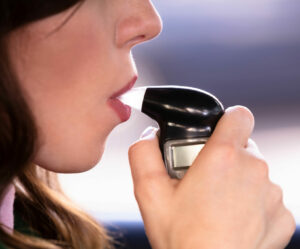
We rely on technology for countless tasks each and every day. However, we sometimes take these tech devices for granted by assuming that they are always working properly. If our equipment isn’t properly calibrated or it’s malfunctioning, we can end up trusting information that is incorrect.
This is also true when it comes to breathalyzer tests for alcohol. We assume that a breathalyzer will always provide an accurate reading, but as you’ll see in this blog, there are plenty of ways for your BAC breath tests to be contaminated or inaccurate. Below, we take a closer look at five ways your breath tests could be contaminated.
Why Your Breath Test Results May Be Bogus
Don’t assume that your breathalyzer results will always be accurate. Here’s five ways they can be contaminated:
1. Improperly Calibrated – The breathalyzer device needs to be calibrated and regularly serviced to ensure that it is in proper working order. If police have not regularly had their breathalyzer devices calibrated or serviced at proper intervals, you can certainly challenge the accuracy of your breathalyzer results.
2. Heat/Cold Exposure – Like a lot of handheld technology, if the breathalyzer device is exposed to extreme heat or cold, the device may be more prone to malfunction. It won’t always be easy to know how the device has been stored, but if you have questions as to the accuracy of your breathalyzer test, learning more about how the device is stored could provide some answers.
3. GERD – As we talk about on this page, if you suffer from acid reflux or a condition known as Gastroesophageal Reflux Disease, your breath test results may not be accurate. Acid reflux allows stomach acid back up into your esophageal canal, and this regurgitation could lead to higher alcohol readings than it should. It’s certainly possible that a medical condition has contributed to your high BAC reading.
4. Administered Too Soon – Officers are required to monitor a suspect for 15-20 minutes before they administer a breath test to ensure that any potential residual mouth alcohol doesn’t impact the results. If the officer observes the individual consuming more alcohol or burping during this observation period and conducts the test anyways, it can affect the validity of the results.
5. Chemical Exposure – Exposure to certain chemicals can also throw off a breathalyzer reading. If you have paint or gasoline fumes on your work attire, or the device was cleaned using improper chemicals, it can affect the accuracy of your test results. If you work closely with paints, varnishes, gasoline, cleaning products or other chemicals, know that these fumes can impact a breathalyzer.
If you have reason to believe that your breathalyzer results are inaccurate, or you simply want to talk with a professional about developing a defense, reach out to Avery and the team at Appelman Law Firm today at (952) 224-2277.





